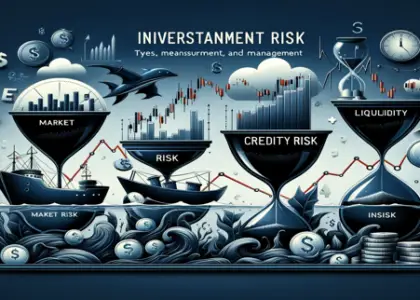Investing can be a powerful tool for building wealth, but understanding the various investment vehicles available is crucial for effective portfolio management and achieving financial goals. This comprehensive guide will explore the primary types of investment vehicles—stocks, bonds, mutual funds, and ETFs (Exchange-Traded Funds)—and discuss their roles, risks, and rewards. By demystifying these options, investors can make more informed decisions and navigate the complexities of the financial markets with greater confidence.
Introduction to Investment Vehicles
Investment vehicles are various options for individuals and institutions to invest their money. Each vehicle has distinct characteristics, risks, and potential returns. The investment choice depends on the investor’s financial goals, risk tolerance, and investment horizon.
Stocks
Stocks, or equities, represent ownership shares in a company. Investors who buy stocks become part-owners of the company. Stocks are traded on stock exchanges, and their prices fluctuate based on supply and demand influenced by company performance, investor sentiment, and broader economic conditions.
Pros:
- Potential for High Returns: Historically, stocks have offered higher returns than many other investment vehicles over the long term.
- Liquidity: Stocks can be quickly bought and sold during market hours, providing liquidity and flexibility to investors.
Cons:
- Volatility: Stock prices can be highly volatile, especially in the short term, exposing investors to potential losses.
- Complexity: Understanding which stocks to buy and when requires significant research and knowledge.
Bonds
Bonds are debt securities issued by corporations, municipalities, states, and sovereign governments to finance projects and operations. Investors who buy bonds essentially lend money to the issuer in exchange for periodic interest payments and the return of the bond’s face value at maturity.
Pros:
- Income Generation: Bonds typically offer regular interest payments, providing a predictable income stream.
- Lower Risk than Stocks: Bonds are generally considered safer than stocks because they offer fixed interest payments and principal repayment at maturity.
Cons:
- Lower Returns: The safer nature of bonds usually translates into lower returns than stocks.
- Interest Rate Risk: Bond prices inversely correlate with interest rates; bond prices typically fall as rates rise.
Mutual Funds
A mutual fund is a pooled investment vehicle managed by financial professionals. It collects money from many investors to invest in a diversified portfolio of stocks, bonds, or other securities.
Pros:
- Diversification: Mutual funds provide access to a diversified portfolio, which can help reduce investment risk.
- Professional Management: Fund managers handle the buying and selling securities, which is beneficial for investors who lack the time or expertise to manage their investments.
Cons:
- Costs: Mutual funds come with management fees and, sometimes, sales charges that can impact overall returns.
- Performance Issues: Not all mutual funds outperform the market, and the presence of professional management does not guarantee success.
Exchange-traded funds (ETFs)
ETFs are investment funds traded on stock exchanges, much like stocks. They hold assets such as stocks, commodities, or bonds. They generally operate with an arbitrage mechanism designed to keep trading close to its net asset value, though occasionally deviations occur.
Pros:
- Flexibility: ETFs can be bought and sold throughout the trading day at market price, similar to stocks.
- Lower Fees: ETFs typically have lower fees than mutual funds because they are passively managed.
- Tax Efficiency: ETFs are generally more tax-efficient than mutual funds due to their unique structure and how transactions are executed.
Cons:
- Market Risk: Like stocks, ETFs are subject to market fluctuations and the risks associated with their underlying investments.
- Limited Control: Investors in ETFs and mutual funds do not have control over the individual securities in the fund’s portfolio.
Navigating Market Conditions
Understanding different market conditions and how they affect various investment vehicles is key to effective investing. Here’s how these vehicles perform under different market scenarios:
Bull Markets
- Stocks typically perform very well in bull markets as economic conditions and corporate earnings growth drive stock prices higher.
- Bonds may see reduced demand as investors shift to more aggressive investments. However, they can still provide stability and income.
- Mutual Funds and ETFs focused on equities can see significant growth during bull markets.
Bear Markets
- Stocks may lose value, but opportunities can be found in defensive sectors such as utilities and consumer staples.
- Bonds become attractive due to their perceived safety and the income they generate, which can be a cushion against falling stock prices.
- Mutual Funds and ETFs that focus on bonds or have a conservative allocation can outperform purely equity-focused funds.
Conclusion
Investment vehicles like stocks, bonds, mutual funds, and ETFs play a distinct role in a diversified investment portfolio. By understanding the characteristics and performance of each type of investment, especially about different market conditions, investors can better align their investment strategies with their financial goals. Whether seeking growth, income, or stability, a well-informed approach to choosing investment vehicles can significantly enhance an investor’s ability to capitalize on opportunities and manage investment risks effectively.






